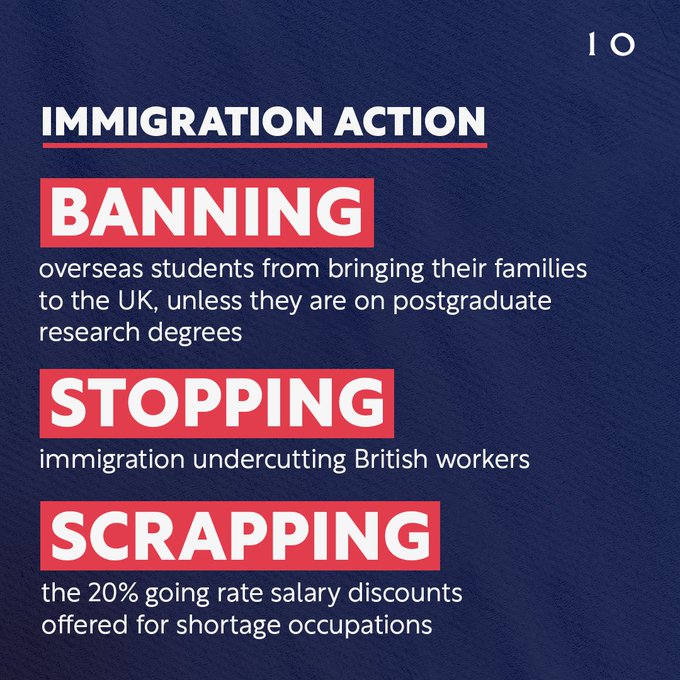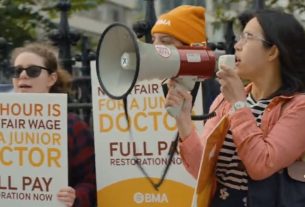On Tuesday, Home Secretary James Cleverly revealed the government’s latest measures to curb immigration by introducing the government’s five-point plan in the House of Commons. With immigration figures topping 700k last year, the government faces mounting pressure, not least from within its ranks. As the name suggests, the five-point plan includes said number of measures, including restrictions to health and care visas, higher salary thresholds for skilled workers, higher income requirements for family visas, and rule-tightening regarding student and skilled worker visas. How workable the measures will be remains to be seen. Already, NHS experts fear it will deepen staff shortages further. The plan aims to cut immigration numbers by 300k in the run-up to the election, which is also one of Rishi Sunak’s key promises. Commentators have noted that the measures will tear families apart, especially low-income earners.
Under the plan, households will need an income of over £38,000, meaning British workers on lower salaries may see their partners forced to leave. This increase represents a significant jump from the £18,600 threshold. Many couples are distressed over the news, with some commenting that love is only permitted for high-earners. Downing Street refuted such claims, stressing that those who wish to bring or keep someone in the country ought to ” be able to support them”.
Five-point plan in brief
The government has defended its plan, emphasising the urgent need to cut net immigration. James Cleverly insisted that the plans would compel immigrants to make a “fair financial contribution so that public services”. The government aims to cut the high number of immigrant dependents travelling to Britain while ensuring immigrants earn fair wages when working in the UK.
Here is a brief overview of the five points:
- Student visa change: The government intends to task the Migration Advisory Committee with reviewing the graduate visa route “to prevent abuse and protect the integrity and quality of UK higher education”. The government already tightened the rules on what family members are permitted to travel with students earlier this year.
- Shortage occupation list: The government will abolish the 20% cut to the minimum wage employers can pay if they operate in short-staffed sectors. It will also cut the list of eligible jobs.
- Family visas: Families must now show an income of £38,700, an increase of over £20k if they want non-British partners to stay.
- Minimum salary change for skilled workers: Here, the income threshold jumps from £26,200 to £38,700. However, this increase will not apply to health and care workers.
- Health and care visas: Under the new measures, foreign care workers will no longer be able to bring family members who depend on them. Care companies will be able to sponsor staff for visa applications, but only by means of the Care Quality Commission process. The government classifies married, civil and unmarried partners as well as children under 18 as dependants.
Speaking at the House of Commons to unveil the plan, Home Secretary James Cleverly told MPs:
“When our country voted to leave the European Union, we voted to take back control of our borders.
“Thanks to this Conservative government, we now have a points-based immigration system through which we control who comes to the UK.
“We prioritise the skills and talent we need to grow our economy and support our NHS – and we have a competitive visa system for globally mobile talent.
“Immigration policy must be fair, consistent, legal, and sustainable”, he added.
Significant backlash to the five-point plan
The plan has sparked considerable criticism from the opposition and British families. Even among Tory party members, some expressed dismay. Gavin Barwell told The Independent that the plan was “both morally wrong and unconservative to say that only the wealthiest can fall in love, marry someone and then bring them to the UK”.
On Tuesday, a spokesperson for the PM told reporters:
“The family immigration rules contain a provision for exceptional circumstances where there would be unjustifiably harsh consequences for the applicant, their partner, a relevant child or another family member if their application were to be refused.”
Applications, the spokesperson explained, would be assessed on a “case-by-case basis”.




